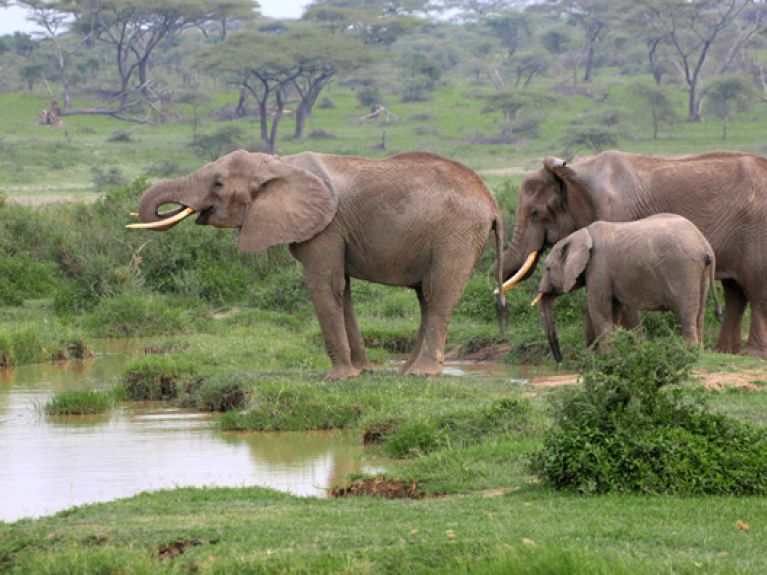Fighting poaching together
Germany is working to fight poaching in Africa. These efforts have meant that animal populations have stabilized within a short space of time in some regions.

The figures are dramatic: Of the estimated once 20 million elephants on the African continent, now only around 350,000 remain. This is a direct result of poaching. Despite the trade ban on ivory, all over the world there are customers who will pay premium prices for the coveted trophies – and in 2015 alone 20,000 elephants were killed as a result. Rhinos are also falling victim to poachers in ever greater numbers.
The total value of illegal trade in wild species is estimated to be at least 19 billion US dollars a year. After human and drug trafficking as well as product piracy, the illegal trade in endangered species is the fourth biggest form of organized crime. “This goes far beyond the damage done in terms of biodiversity and conservation”, says Katharina Trump, expert for anti-poaching at the World Wildlife Fund (WWF). “It also threatens regional and national economies, as well as security and stability in the affected countries.”
After all, illegal trading requires criminal, internationally active networks and corruption among police, customs officers and government officials. At the same time, ivory is also used as a currency to fund armed conflicts and terrorism, and poaching also takes its toll on tourism – amounting to up to 23 million US dollars in 2016 alone.
Protection for rangers
German NGOs like the WWF, the Frankfurt Zoological Society and the Global Nature Fund and organizations like the Deutsche Gesellschaft für Internationale Zusammenarbeit (GIZ) rely on enhanced monitoring of protected areas to stop the poaching. Hence in the Selous and the Serengeti National Park in East Africa, two German planes are being deployed with which the pilots can fly particularly slowly and at low altitude.
Also crucial is the protection of rangers locally. “They have a very dangerous job”, Trump says. Over the past ten years more than 1,000 of them have been killed – both by animals and by poachers. GIZ is involved in training rangers, amongst other things, and providing them with better equipment – including high-frequency radio systems, night-vision devices and computer- and smartphone-compatible software which the rangers can use to transmit their observations for evaluation at the base with no time delay. In the meantime, the elephant population in the Selous wildlife reserve, which had fallen dramatically within the space of four years from 40,000 to 15,000 animals, has stabilized again.
The training of customs officials and lawyers also plays an important role. “Poached products achieve high prices, but the risk is small”, explains Klemens Riha from GIZ. High custodial sentences and conviction rates could deter criminal organizations.
Global fight against poaching
One milestone is the resolution against poaching passed by the United Nations in July 2015, which was jointly initiated by Gabon and Germany. In it, 193 states make a commitment towards better international cooperation. One factor here is a change in attitude among consumers, primarily in China, Thailand and Vietnam. Hence in November 2016 a high-level international anti-poaching summit took place in Hanoi – a gathering that would have been unthinkable just a few years ago.

